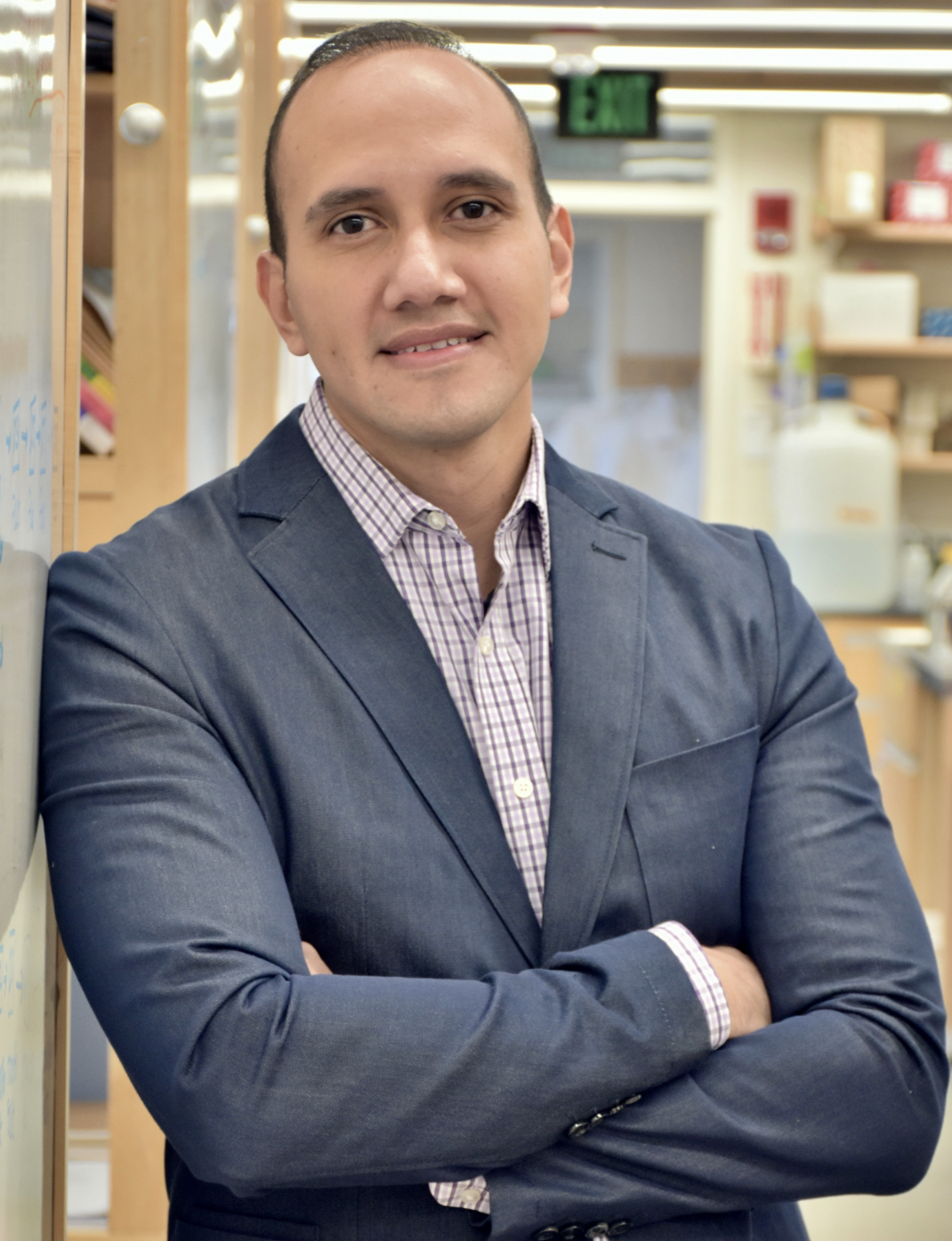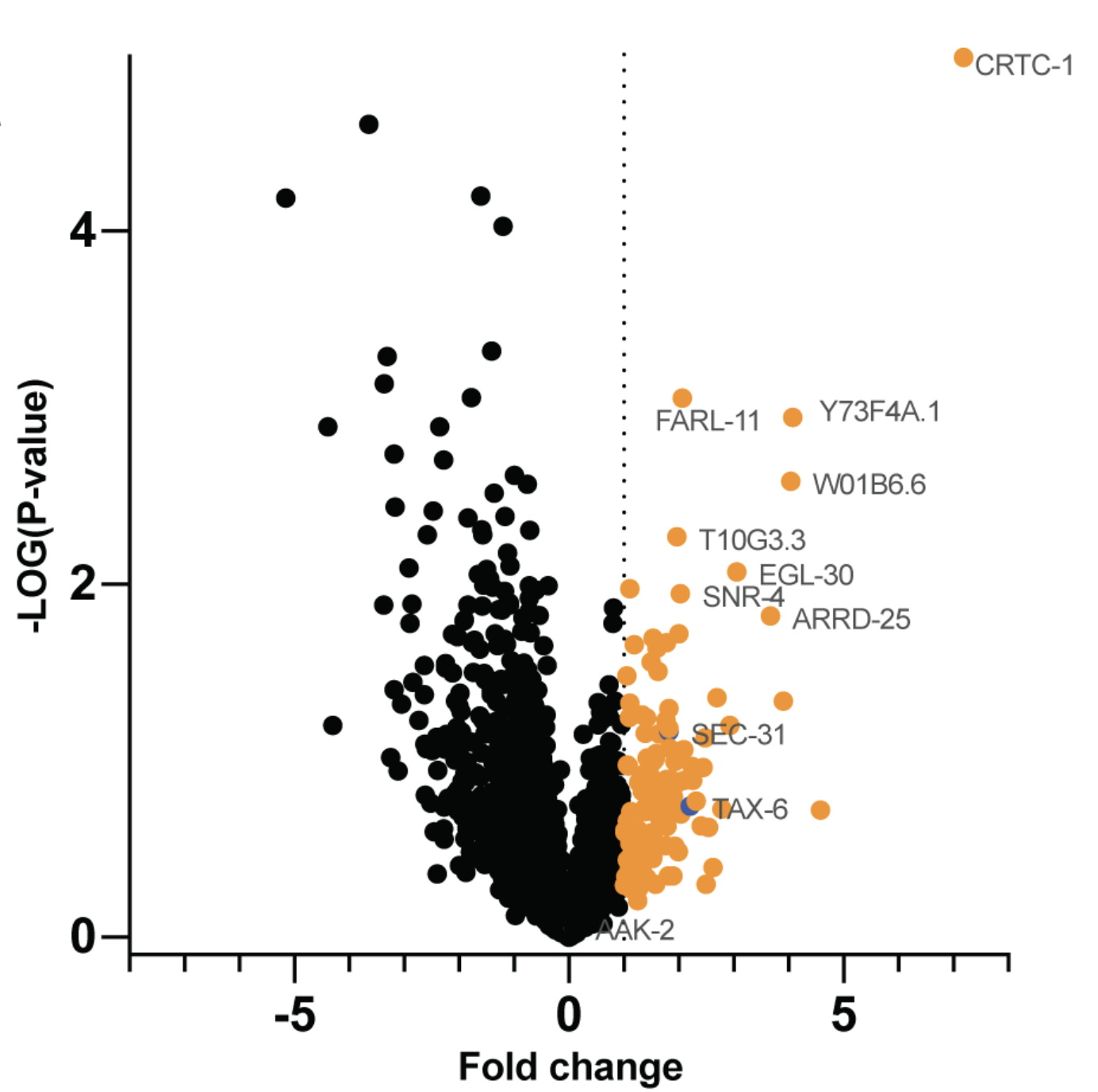
The biology of human aging is a multidimensional process that is affected by almost every unique system in the body, from cardiovascular to cognitive systems and many more. This makes studying aging particularly difficult, as you need experts from diverse backgrounds to generate accurate assessments of aging risk factors. For this reason, these studies often involve collaboration between fields, and the overlap is only increasing as we discover more about the aging process. The Brown Center on the Biology of Aging has always fostered this approach and is currently looking to expand even further. We are pleased to welcome Dr. Carlos Giovanni (Gio) Silva-García, an esteemed scientist from Dr. William Mair’s lab at Harvard and an expert on genetics and epigenetics of aging.
Gio received his Ph.D. from the National Autonomous University of Mexico, studying under Dr. Rosa E. Navarro, where he investigated how RNA-binding proteins regulate stress response in the popular animal model, C. elegans. This work, along with a life-long interest in animals and developmental biology, was the foundation to Gio’s career, which evolved into an interest in aging due to the multitude of biological systems involved and transgenerational effects. From there, he joined Dr. William Mair at the Harvard T.H. Chan School of Public Health as a postdoc, investigating the molecular mechanisms linking epigenetic modifications to longevity. Gio will be starting at the Center on the Biology of Aging as an assistant professor with the goal of venturing further into the epigenetics of aging.
Transgenerational aging and epigenetics
Aging itself is considered to be the primary risk factor for multiple chronic health conditions, such as cancer, diabetes, neurodegeneration, and infectious diseases. It is therefore imperative to focus and accelerate research into the fundamental mechanisms behind aging, especially with respect to epigenetics. These conditions are also not isolated, as they can have significant effects passed on to new generations.

It has been well documented that a reduction of global levels of trimethylation of lysine 4 on histone 3 (H3K4me3) extends lifespan in C. elegans, the primary model organism used by Gio and and his Harvard team. During Gio’s postdoc, he studied the role of CREB-regulated transcriptional coactivators (CRTCs), which act as key regulators of gene expression, in aging. He discovered a novel function of CRTCs that could provide new targets to promote longevity. Specifically, he found that one function of CRTC-1 in neurons was to modulate a balance between reduced H3K4me3 and histone acetylation levels which appear to be crucial for animal longevity. This work highlights the role of acetyltransferases and how they reduce epigenetic noise through KAT2B/PCAF-1 activation which extends lifespan by 40% in wild-type animals. Having fully characterized this conserved signaling pathway in C. elegans, Gio now has the tools to uncover the precise mechanisms by which histone acetyltransferases exert their effect on longevity in a whole organism.
Future directions at Brown University
Gio’s recent work provided the foundation for his transition to Brown. He plans to focus on how epigenetic modifications slow aging and promote transgenerational benefits, aiming to manipulate these modifications to promote rejuvenation. Specifically, this proposal was generated from the ongoing research Gio had with Dr. Mair during his time at Harvard. Currently, Dr. Mair’s laboratory is not investigating any topic related to epigenetics, providing a unique direction for Gio and the freedom to explore beyond his initial research goals. As a faculty member of the Brown Center on the Biology of Aging, Gio will have access to the latest cutting-edge techniques where he plans to develop methodology that not only addresses aging but can be expanded to other biological systems as well.